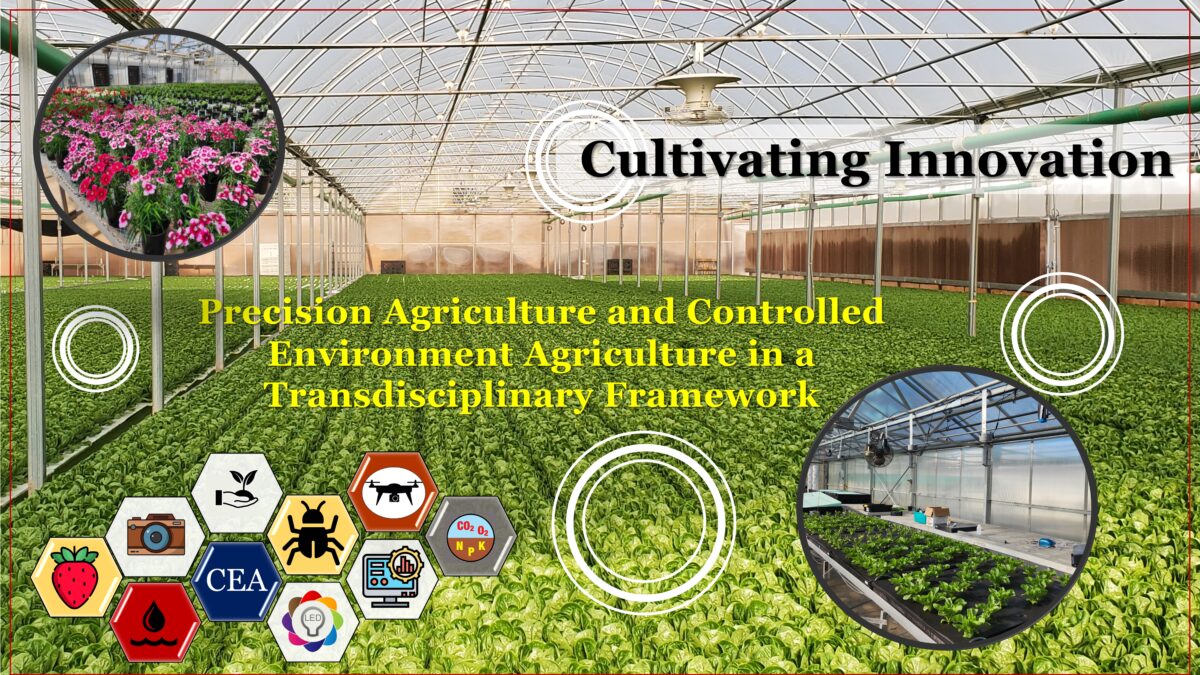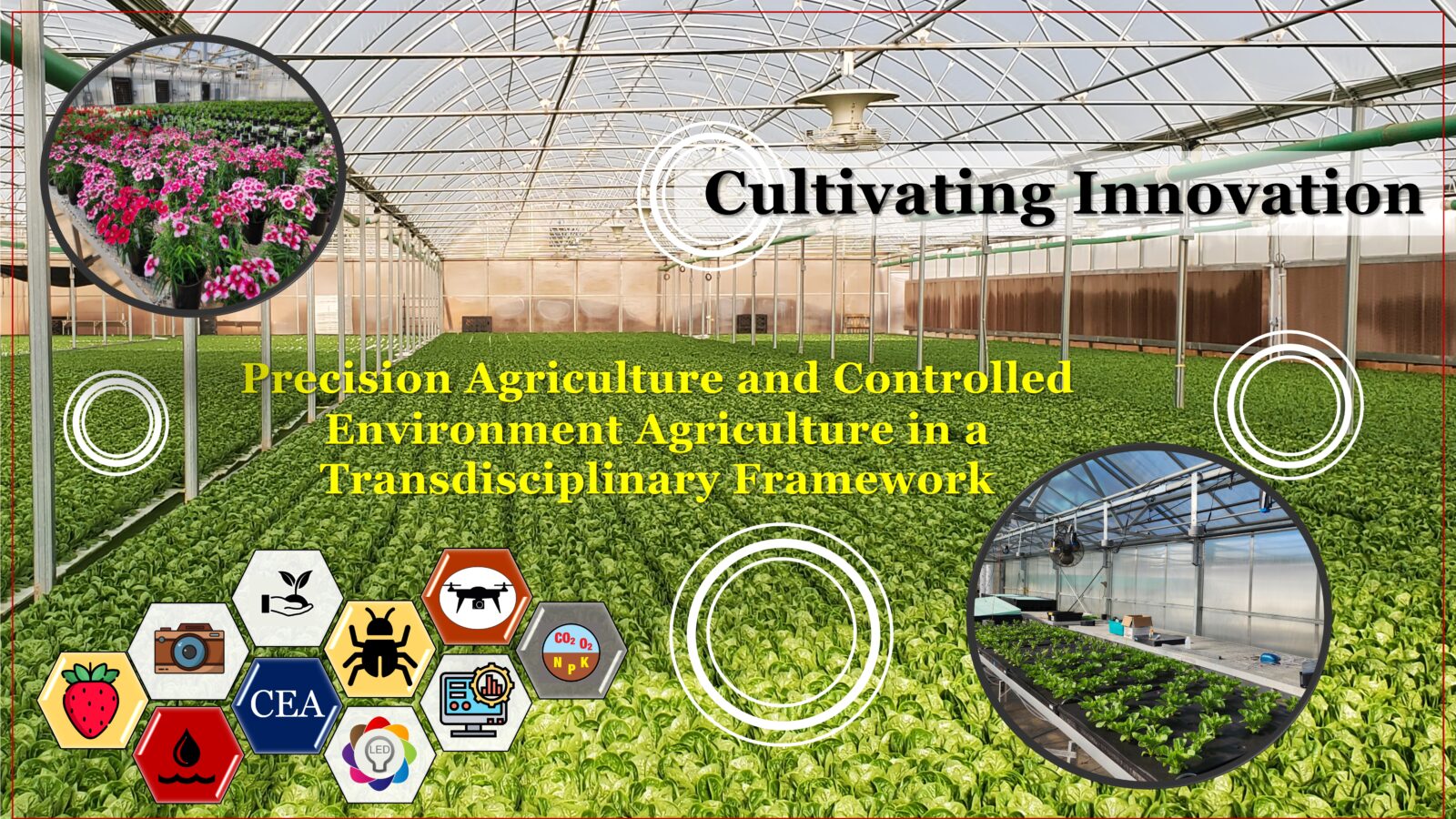Teaming for Interdisciplinary Research Pre-Seed Program
Cultivating Innovation: Precision Agriculture and Controlled Environment Agriculture in a Transdisciplinary Framework

Cultivating Innovation: Precision Agriculture and Controlled Environment Agriculture in a Transdisciplinary Framework

Modern agriculture faces the challenge of providing nutritious food for a growing global population while minimizing environmental impact, and that can only be accomplished with modern farming techniques. In this context, Precision Agriculture (PA) is an advanced farming approach that utilizes technology and data to optimize agricultural practices, enhancing resource use efficiency and reducing waste. Controlled Environment Agriculture (CEA) involves tightly regulating the growing conditions within enclosed structures like greenhouses or vertical farms to maximize crop yield and resource use efficiency. However, these areas are often separated as if field and indoor agriculture are distinct entities.
Even though the production environments are different, these spaces share the same challenges of fertilization, watering, pest and disease pressure, and harvesting and could benefit from developing imaging and cultivation technologies that could be scaled to different industries to increase adoption and maximize the benefits of investing local, county, state and federal fundings into research, development, and outreach. This collaborative framework aims to comprehensively connect people from PA and CEA in targeted initiatives to reduce research overlapping and increase the opportunities to bring dollars to each program while expanding the UGA IIPA visibility and leveraging our ability to secure funding as a group and contribute to Georgia agriculture.
This group will discuss strategies to comprehensively analyze leafy greens grown in outdoor, greenhouse, and vertical farm environments using production, imaging, and analytical tools such as machine learning for plant growth rate tracking and early identification of growth-limiting variables. These tools can assist in expediting the decision-making process of irrigation, fertilization, pest and disease control, and harvesting based on in-house knowledge.
We will organize a series of meetings to foster collaboration (n = 5). In the first meeting, we are integrating the research groups on a day-long seminar with 15-minute presentations of our graduate students to better understand the areas for cooperation. Next, we will identify calls for proposals that can entertain a grant and start having in-person working meetings to craft a document for submission at the end of FY 2024. These oriented activities will have working time devoted to proposal writing and will be led by the PI, Dr. Rhuanito Ferrarezi, serving not only as a tool to network and discuss ways to integrate this multitude of professionals but to leave with a meaningful product to bring research, education, and outreach support to the university and the IIPA.
Team Lead
Rhuanito Ferrarezi
rhuan@uga.edu
College: College of Agricultural and Environmental Sciences
Department: Horticulture
Team Members
Leonardo Bastos
College: College of Agricultural and Environmental Sciences
Department: Crops & Soil Sciences
Gregory Colson
College: College of Agricultural and Environmental Sciences
Department: Agriculture & Applied Economics
Lorena Lacerda
College: College of Agricultural and Environmental Sciences
Department: Crops & Soil Sciences
Guoyu Lu
College: College of Engineering
Department: School of Electrical and Computer Engineering
Md Sultan Mahmud
College: College of Agricultural and Environmental Sciences
Department: Plant Pathology
Andrew Ogden
College: College of Agricultural and Environmental Sciences
Department: Horticulture
Luan Oliveira
College: College of Agricultural and Environmental Sciences
Department: Horticulture
Erich Schoeller
College: College of Agricultural and Environmental Sciences
Department: Entomology
Joonhyuk Sun
College: College of Agricultural and Environmental Sciences
Department: Food Science & Technology
Kuan Qin
College: College of Agricultural and Environmental Sciences
Department: Horticulture
